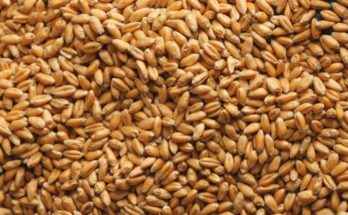The Government of India should create a buffer stock of mustard seeds of at least 2.5 million tonnes, like pulses, to enhance domestic production and reduce imports of cooking oils, Central Organization for Oil Industry and Trade (COOIT) said in its budget wish-list. The procurement for the proposed creation of buffer stock should be made at the market price at the very beginning of crop season, which will ensure oil processing units would operate throughout the year.
The COOIT, an apex body for the vegetable oils sector, also wants the government to widen the gap between import duties of crude edible oils and refined edible oils.
India imported edible oils worth Rs 1.17 lakh crore, an all-time high, in the 2020-21 oil marketing year ended October, mainly due to a sharp rise in global prices. COOIT feels that it’s high time the Central and state governments to focus on increasing domestic production of oilseeds.
“We urge the government to launch a dedicated scheme in the upcoming budget with a significant allocation to encourage farmers for cultivation of various oilseeds crops like mustard, soyabean and sunflower,” COOIT Chairman Suresh Nagpal said.
Already, the Government in August 2021 launched the National Mission on Edible Oils – Oil Palm (NMEO-OP) with a financial outlay of Rs.11,040 crore to boost domestic production of palm oil. A similar initiative should be undertaken to increase mustard cultivation.
You may also like to read: Innoterra partners with AEG Foundation to enable transformation of 500,000 farmers
“Like wheat and rice, a small quantity of mustard oil can be supplied every month to over 80 crore beneficiaries covered under the National Food Security Act at a subsidised rate. This will prompt farmers to cultivate mustard,” COOIT said.
The Government has been trying to encourage mustard cultivation and results have started showing. This year area under mustard cultivation is likely to increase by 25 per cent and mustard production is estimated at 110 lakh tonnes.
“If the Government creates a buffer stock of 25 lakh tonnes of mustard, it will further encourage mustard cultivation and also act as a price stabilisation mechanism in case of sharp fluctuations in mustard prices as it was witnessed during 2021,” said Suresh Nagpal.
The association also strongly feels that the difference between import duty on crude edible oils and refined edible oils should be larger to protect the interest of domestic processors. Earlier the difference was 11 per cent, which is now at 5.5 per cent.
According to COOIT, this is adversely impacting the crude palm oil (CPO) refining industry in India and hence, duty differential needs to be increased. Moreover, COOIT sees scope for increasing the domestic production of rice bran oils.
Established in 1952, COOIT is India’s national apex body representing the interests of the vegetable oil sector in the country and its members include state-level associations, prominent manufacturing/business, trade and export houses.





